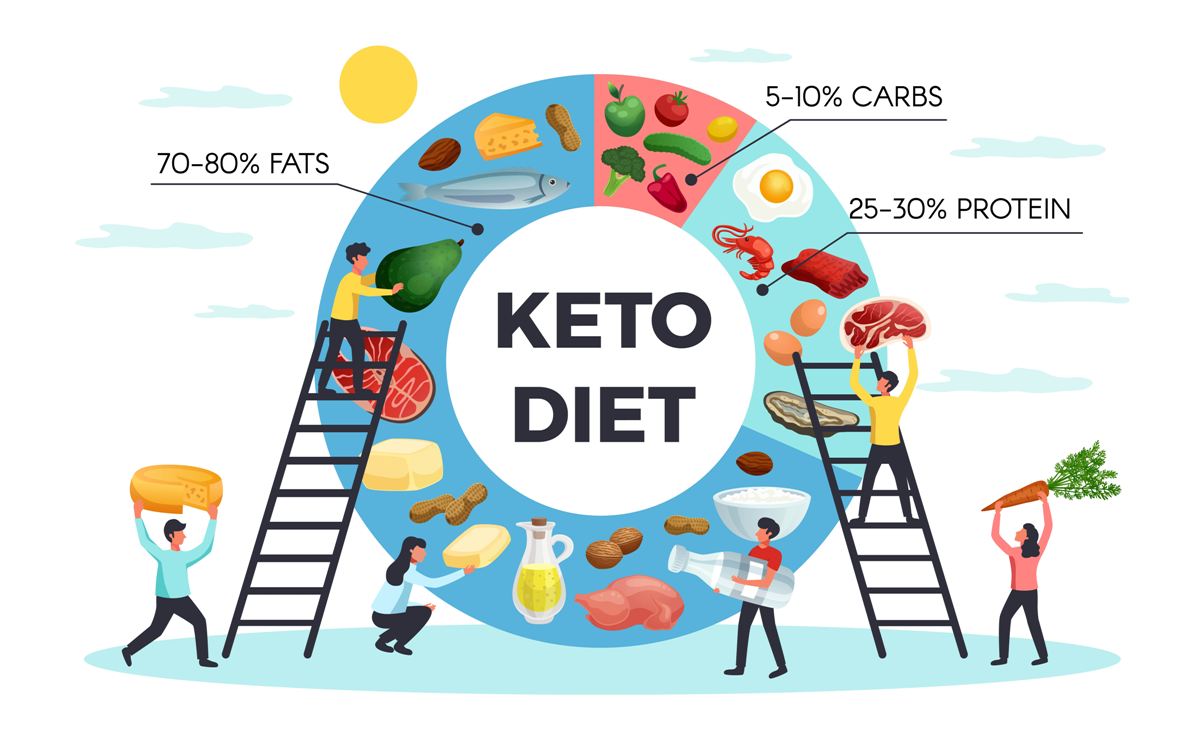Are you considering or already on a ketogenic diet and experiencing frequent urination? Understanding how long this symptom lasts and how to manage it is crucial for your comfort and overall well-being. In this comprehensive guide, we delve into the duration of frequent urination on keto, its causes, effective coping strategies, and answer frequently asked questions to help you navigate this aspect of the ketogenic journey.
Table of Contents
- Introduction
- Understanding Ketogenic Diet and Urination
- Factors Contributing to Frequent Urination on Keto
- Duration of Frequent Urination on Keto
- Coping Strategies for Frequent Urination on Keto
Key Takeaways
- Frequent urination is a common side effect of the ketogenic diet, often occurring during the initial stages of transitioning into ketosis.
- Understanding the factors contributing to frequent urination, such as increased water intake and electrolyte imbalance, is essential for effective management.
- The duration of frequent urination on keto varies from person to person but typically diminishes as the body adapts to ketosis.
- Coping strategies include proper hydration, electrolyte supplementation, and monitoring blood sugar levels to maintain overall health on the ketogenic diet.
Introduction
Embarking on the ketogenic diet can be an exciting journey towards improved health and weight loss. However, as your body adjusts to this low-carb, high-fat eating plan, you may encounter certain side effects, one of which is frequent urination. In this article, we explore the phenomenon of frequent urination on keto, examining its duration, underlying causes, effective coping strategies, and addressing common questions surrounding this topic.
Understanding Ketogenic Diet and Urination
Before delving into the specifics of frequent urination on keto, it’s essential to grasp the fundamentals of the ketogenic diet and how it affects the body’s urinary patterns.
How the Ketogenic Diet Works
The ketogenic diet is a high-fat, moderate-protein, and low-carbohydrate eating plan designed to induce a metabolic state called ketosis. In ketosis, the body shifts from using glucose as its primary fuel source to burning fats for energy. This metabolic adaptation leads to the production of ketones, which are utilized by the body and brain for fuel.
As the body transitions into ketosis, it undergoes various physiological changes, including alterations in urine production and frequency.
Role of Ketosis in Altering Urinary Patterns
Ketosis affects urinary patterns primarily through increased excretion of water and electrolytes. When insulin levels decrease in response to reduced carbohydrate intake, the kidneys excrete excess sodium and water, leading to more frequent urination. This diuretic effect is a natural response to the metabolic changes induced by the ketogenic diet.
Additionally, the production of ketones may contribute to changes in urine composition, potentially resulting in a stronger odor or different color. While these changes are typically benign, they may cause concern for some individuals.

Image Description: Illustration showing a person experiencing frequent urination on the ketogenic diet.
Factors Contributing to Frequent Urination on Keto
Several factors contribute to the occurrence of frequent urination on the ketogenic diet, exacerbating the diuretic effect of ketosis. Understanding these factors can help you better manage this common side effect.
Increased Water Intake
Water plays a crucial role in the ketogenic diet, especially during the initial stages of adaptation. Many individuals increase their water intake to stay hydrated and mitigate symptoms of the keto flu. However, this heightened hydration, coupled with the diuretic effect of ketosis, can lead to more frequent trips to the bathroom.
Electrolyte Imbalance
Electrolytes, such as sodium, potassium, and magnesium, play vital roles in maintaining fluid balance and proper nerve function in the body. On the ketogenic diet, electrolyte levels may fluctuate due to reduced carbohydrate intake and increased excretion through urine. Imbalances in electrolytes can contribute to dehydration and exacerbate the frequency of urination.
| Electrolyte | Food Sources |
|---|---|
| Sodium | Bone broth, olives, salted nuts |
| Potassium | Avocado, spinach, salmon |
| Magnesium | Almonds, spinach, pumpkin seeds |

Duration of Frequent Urination on Keto
The duration of frequent urination on keto varies from person to person and depends on several factors, including individual physiology, hydration status, and adherence to the diet. Generally, the frequency of urination tends to diminish as the body adapts to ketosis.
Initial Onset
During the initial phase of transitioning into ketosis, which typically lasts a few days to a week, frequent urination is common as the body adjusts to utilizing fats for fuel and excreting excess water and electrolytes. This phase may be accompanied by symptoms of the keto flu, including fatigue, headache, and dizziness.
Transition Phase
In the following weeks, as the body becomes keto-adapted, the frequency of urination may continue but gradually decrease. Individuals may still experience intermittent bouts of frequent urination as their metabolism stabilizes and electrolyte levels normalize.
Stabilization Phase
Beyond the first month of starting the ketogenic diet, most individuals experience a stabilization of urinary patterns as their bodies fully adapt to ketosis. Frequent urination becomes less pronounced, and many people find their bathroom visits returning to normal or near-normal levels.

Coping Strategies for Frequent Urination on Keto
While frequent urination on keto can be bothersome, several strategies can help mitigate this side effect and promote overall comfort and well-being.
Stay Hydrated but Avoid Overhydration
Maintaining adequate hydration is essential on the ketogenic diet to support various bodily functions and prevent dehydration. However, it’s crucial to strike a balance and avoid overhydration, which can exacerbate the frequency of urination. Drink water steadily throughout the day and listen to your body’s thirst cues.
Proper Electrolyte Supplementation
Replenishing electrolytes lost through increased urination is critical for preventing dehydration and maintaining optimal health on keto. Incorporate electrolyte-rich foods into your diet or consider supplementing with electrolyte powders or tablets. Be mindful of sodium, potassium, and magnesium intake to support proper hydration.
Managing Caffeine Intake
Limiting caffeine consumption, especially in the evening, can help reduce the frequency of urination, as caffeine has diuretic properties that stimulate urine production. Opt for decaffeinated beverages or herbal teas during periods of increased urination to minimize its impact on sleep quality.
| Beverage | Caffeine Content (mg) |
|---|---|
| Coffee (8 oz) | 95 |
| Black Tea (8 oz) | 47 |
| Green Tea (8 oz) | 29 |
| Soda (12 oz) | 34 |

Frequently Asked Questions (FAQs)
1. Why does keto cause frequent urination?
The ketogenic diet induces ketosis, a metabolic state where the body burns fat for fuel instead of carbohydrates. This process leads to increased urine production as the body excretes excess ketones and fluids.
2. Is frequent urination on keto a sign of dehydration?
Frequent urination on keto can sometimes lead to dehydration if adequate fluid and electrolyte intake are not maintained. It’s essential to monitor hydration levels and replenish electrolytes to prevent dehydration.
3. Can I take diuretics to alleviate frequent urination on keto?
It’s generally not recommended to take diuretics to manage frequent urination on keto, as they may worsen dehydration and electrolyte imbalances. Focus on hydration and electrolyte supplementation instead.






